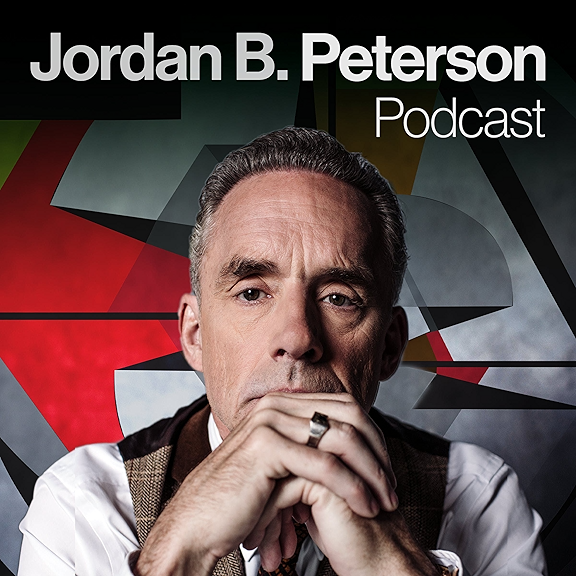
Join me as I reflect on a book I finished reading last year via this short post. I say read, but what I really mean is listen to, as audiobooks are how I consume most books these days. The book I speak of is Anna Karenina, a classic work of literature written by the Russian author Leo Tolstoy.
Who is Anna Karenina? She’s a married woman in aristocratic Russian society who falls in love with a young officer named Count Vronsky. Through Anna’s life story, Tolstoy explores themes of love, desire, societal expectations, and the consequences of going against established norms. It’s a cautionary tale about the destructive power of passion and the challenges one must face from defying societal conventions.
(Spoiler Alert!)
The novel starts with Anna taking a train from St. Petersburg to Moscow to visit her brother whose marriage is falling apart due to his infidelity. On the journey, Anna meets Count Alexei Vronsky and there is an instant spark between them.
When Anna returns to her husband, a high-ranking government official, the encounter with Vronsky continues to linger in her mind and makes her feel discontent with her current loveless marriage. Anna also has a young son, Sergei, who makes her feel torn between her duty as a mother and a wife and her passionate desire for love and fulfillment.
Eventually, Anna surrenders to her feelings and begins a scorching affair with Vronsky. The affair does not stay secret for long and leads to Anna getting socially ostracized. She leaves her husband for Count Vronsky permanently, however she is unable to get a divorce and loses custody of her son to him.
Anna's mental and emotional state further deteriorates due to greater scrutiny and societal pressure on her for engaging in the affair as compared to Count Vronsky. She becomes increasingly jealous over Vronsky's interactions with other women leading to arguments which strain their relationship.
In a state of desperation from the consequences of her affair, Anna makes a tragic decision to end her life. She throws herself in front of a train, bringing her story to a devastating end.
Anna is such a complex and multidimensional character because in addition to a detailed account of the events that unfold, Tolstoy also describes her internal thoughts, emotions, and motivations. On the one hand, Anna could be seen as morally questionable and selfish for betraying her husband and disrupting her family. However, I could empathize with her feeling trapped in an unhappy relationship while yearning for love and fulfillment because Tolstoy offered a broad portrayal of her complex inner psychology.
The other major character of the novel is Konstantin Levin, a wealthy landowner who lives in the Russian countryside and is deeply committed to his work on the land. He arrives in Moscow to propose to Kitty Scherbatsky, but she rejects him in favor of Count Vronsky. Feeling heartbroken and devastated, Levin retreats to his rural estate to focus on his agricultural work.
During his time away from Kitty, Levin experiences a period of self-discovery and introspection by delving into questions of faith, morality, and the meaning of life.
Unbeknownst to Levin, Kitty's relationship with Vronsky crumbles, as Vronsky leaves her to go to St. Petersburg to pursue Anna. Upon hearing that Vronsky is no longer in the picture, Levin travels to Moscow to find Kitty.
During their reunion, Levin and Kitty have a playful and nearly wordless encounter. Using chalk, Levin writes the first letters of each word to express his thoughts and feelings. Amazingly, Kitty understands him perfectly and responds the same way. Through this unique form of communication, they admit their love for each other and Levin proposes again. This time Kitty accepts.
Despite the absence of spoken words, their deep connection transcends verbal language as they both communicate with and understand one another on a profound level beyond the limitations of spoken words. This pivotal moment in Levin and Kitty's relationship, showcases love, reconciliation, and the potential for growth and happiness in relationships. It is a contrasting and uplifting narrative that serves as a counterbalance to Anna's struggles.
The remainder of Levin and Kitty's story is about the challenges of building a life together as they move to Levin's estate to start a family.
Personally, I could relate to Levin more than any other characters because he embodies emotional depth, vulnerability, and a strong sense of individuality. He wears his heart on his sleeve and is willing to embrace his emotions which I relate to because I also find it hard to remain stoic and suppress or hide my feelings when they arise. Furthermore, Levin is an independent thinker who uses first principles to guide his search for meaning. I appreciate this character trait as I also resist relying on authority to form an opinion. Not unlike Levin, I prefer to use my academically trained ability to critically evaluate the credibility, relevance, and quality of information sources in conjunction with logical reasoning for problem solving.
By the end of the novel, from a religious epiphany Levin comes to appreciate the significance of family and the fulfillment that can be found in leading a meaningful and authentic life alongside his beloved wife and child. Much like Levin, as a young father of two small children in a nine year marriage, I feel a deep sense of purpose and fulfillment from nurturing my children and maintaining a loving and committed marriage.
Another major theme of the novel is Tolstoy’s depiction of Imperial Russia in the late 19th century as the country was transitioning from a feudal society to a more modern one. As a reader, you get immersed with detailed descriptions of the manners, customs, and values of the different classes of people in Moscow, St. Petersburg and the surrounding countryside. Tolstoy also covers the ways in which social norms and expectations impacted personal happiness and fulfillment of the characters.
It’s amazing to consider that approximately four decades after the time of the novel, the Russian revolution put a bloody and abrupt end to Imperial Russia, giving birth to the first ever communist government, thus ending those manners, customs, and values so beautifully described in Anna Karenina.
Tolstoy even hints of the possible changes that Russia might face in the future by depicting characters who express dissatisfaction with the status quo and advocate for social change. For example, Levin is portrayed as an idealistic populist critical of the aristocracy and interested in the plight of the peasants. He is even sympathetic to some socialist ideas of the time such as dismissal of institutions. Yet he finds those same socialist ideas sounding embarrassing when espoused by his brother Nikolai, a miserable physically ill man who has lost most of his wealth.
I perceived Tolstoy’s contrast between Levin and his brother Nikolai as a metaphor for a fork in the road of Russia to reorient and transition to a modern society successfully. Nikolai has passionate socialist ideas to completely change Russia, yet he is an alcoholic and a gambler with continually deteriorating health.
In stark contrast, Levin embodies many of the traditional values of Russian society, including a deep reverence for the land, a commitment to family and a belief in the importance of hard work and responsibility. Yet, he is also a philosophical character constantly questioning his own beliefs and values. For example, Levin recognizes the advantage of western technology and agricultural science over the feudal Russian practice of relying on forced manual labour from peasant farmers.
The principles of maintaining tradition while simultaneously being open to questioning how things have been done historically appears to be Tolstoy’s answer as to which is the way forward for Russia. This is evident in the novel during the final days of Nikolai’s life as poor health leads to his ultimate demise. He dies in a dirty hotel with no one to care for him except Marya, a prostitute he treats like a wife, and his brother Levin and his new wife Kitty. The death of Nikolai provokes Levin to do some deep soul-searching about the meaning of life and how he should reorient his mind for the life ahead with his new wife. To me, Tolstoy uses Levin’s character as a metaphor for all of Russia and a prescription for how to proceed. Unfortunately, history chose the other fork in the road as a bloody revolution headed by Vladimir Lenin a few decades later would spread communism all over Russia and create the Soviet Union.
For me personally, Anna Karenina transcended the huge time gap and cultural differences between the novel’s setting and my present day with its insightful portrayal of human emotions and relationships. Themes of the novel such as complexities of love or challenges of marriage and family dynamics, just to name a few, are fundamental aspects of the human experience that will remain relevant for a long time. In addition to Anna Karenina and Konstantin Levin, the novel also offers a plethora of other multifaceted characters who grapple with their desires, insecurities and inner conflicts in a manner I could easily relate to and empathize with. I will take great pleasure in revisiting Anna Karenina in a few years to rekindle the emotional connection to the characters and make new insights and discoveries about their journeys.
Did you like this post? Would you like to see more like it? Please leave a comment and let me know.
Connect with J-Mart on Social Media
Instagram - https://www.instagram.com/jmartfit/
Twitter - https://twitter.com/jmartfit
Facebook - https://fb.me/jmartmoves
Medium - https://jmartwrites.medium.com/
Email - jmartfit@substack.com
You can also check out my State of Health Podcast (health education geared) on the platform of your choice:
Apple -
Spotify -
Amazon Music - https://music.amazon.ca/podcasts/01bb34c0-00a2-45e2-8627-95c32aba7c0e/state-of-health
Stitcher - https://www.stitcher.com/show/state-of-health
Google Podcasts - https://podcasts.google.com/feed/aHR0cHM6Ly9mZWVkcy5yZWRjaXJjbGUuY29tL2QzZGIwODYxLWJmODItNDc0Mi1iZGYzLWMyZDAxODQ4ODY2Ng==
Referral Links
Shakepay - Sign up with my link and we'll each get $10 to buy Bitcoin. Don’t buy Etherium.https://shakepay.me/r/HNT0N6Q
Wild Meadows Farm — Amazing quality meat from a Southern Ontario farmhttps://wildmeadowsfarm.ca/register?referral_code=V2OMFtc5XYJd
Music: www.bensound.com
This is a public episode. If you would like to discuss this with other subscribers or get access to bonus episodes, visit jmartfit.substack.com




















